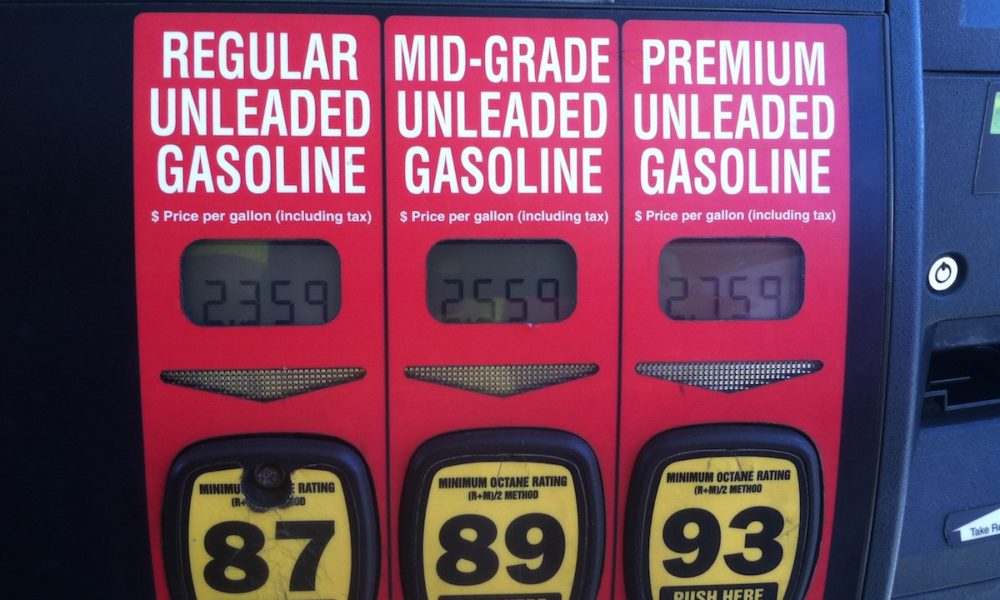Elevating the octane in gas – seen as ways to improve fuel economics and reduce emissions in today’s high technology turbocharged, direct injected engines – seems like it’ll get some attention from the EPA. That is the great news. Higher octane gasoline probably will not be available till the next set of fuel economics and emissions standards take effect after 2025. The deliberations about how high to increase octane are still likely a few years off. Octane, you might remember, is a way of measuring how much pressure fuel may resist before it ignites. High compression engines produce more power, but want high octane fuel.
In Germany for instance, regular gas is typically 95 octane while premium is 100, based on the RON scale. The octane in American gasoline is determined otherwise And it is the average of the RON And it MON. Generally, American levels of fuel are 4 to 6 octane less than equivalent levels of European gasoline. Higher output allows technicians further reduce motor size, which likewise cuts vehicle weight. Its new generation 3.5 litre twin turbo V6 makes more power than a lot of Ford older big block V-8s. During a latest auto business conference in Traverse City, Mich., Chris Grundler, manager of the EPA’s office of transport and air quality, said the bureau recognizes fuels possess a role to play in empowering automakers to meet tougher fuel economics and emissions regulations.

After 2025, we must speak about what the future fuels must look like and what’s the optimal mix of vehicle and fuel technologies. It’s not as simple as the automakers may think it’s under the law, and we’ve to follow the law. It wasn’t as simple as asking experts to settle on just a brand new higher octane rating. Says Grundler: There are several provisos. For us to intervene And it set fuel requirements, we need to show that there’s an air quality advantage or that, absent rules, that it’s somehow suppressing the after treatment or other portions of the vehicle.
And that the benefits outweigh the costs. Following the current set of fuel economics standards are fully phased in, it might be easier for the EPA to make its case for higher octane gas. You may think that adding octane is really a simple issue of dumping more ethanol into the mixture. While adding ethanol does bump up octane, it likewise lowers fuel economics since the ethanol to replace gasoline is less energy dense.
Comments
0 comments
